“Every gun that is made, every warship launched, every rocket fired, signifies in the final sense a theft from those who hunger and are not fed, those who are cold and are not clothed.”
– Dwight D. Eisenhower
“What politics have you?” I asked.
“I am without politics,” he said. “I am seventy-six years old. I have come twelve kilometres now and I think now I can go no further.”
“I am without politics,” he said. “I am seventy-six years old. I have come twelve kilometres now and I think now I can go no further.”
The above conversation appears in the short story, ‘The Old Man at the Bridge’, by Ernest Hemingway, the American novelist, short story writer, and journalist. In March 1937, Hemingway travelled to Spain to report on the Spanish Civil War for the North American Newspaper Alliance (NANA). And the story is set in the backdrop of that war.
The Spanish Civil War was fought between the left wing Republicans who were running the government and the right wing Nationalists who wanted to overthrow that regime. The army led by General Franco was with the Nationalists. They also had the support of the monarchists and large landowners. The Catholic Church had also backed the Nationalists.
In 1930, the Spanish monarchy had been overthrown by the Republicans. When the newly installed Republican government tried to bring in social reforms, the powerful Catholic Church came out strongly against it. The Church and the Spanish army were apprehensive of a Communist takeover of the government. The Republican rulers were inept. The economic situation of the country was bad. So was the law and order situation. Resentment against the government was brewing all over. The situation soon became explosive. In July 1936, the right wing leader Calvo Sotelo was murdered. It was the spark needed to light the fuse. It triggered the Spanish Civil war.
The Civil war had started as a battle between the left leaning Republicans and the right wing Nationalists. As the war progressed, other nations got involved. The fascist governments of Germany and Italy came to support the Nationalists. The USSR aligned with the Republicans.
After three years of a bloody and devastating civil war, the Nationalists won. The civil war ended. But the agonies of the Spanish people would not. They would suffer much more for another forty years under the rule of the Nationalists led by General Franco.
The Spanish civil war was a horrifying experience for the civilian population. The military was with the Nationalists. Fighter planes dropped bombs from the sky. On the ground, heavy artillery blew civilian settlements to smithereens. As the Nationalist army advanced, authorities kept evacuating the civilians to safer grounds. People ran for dear life, grabbing whatever possessions they could carry along. They had no idea where they were going or how long they would run or live.
Among the people forced to flee was a seventy-six year old man. He had been living alone. He had stayed on even after everyone else in his town had escaped to safer locations. But he could not stay put for long. Heavy artillery was fast closing in on his little town. So the authorities eventually drove the man out.
This old man is one of the two characters in Hemingway’s story. It is basically his story. The other character is an army scout. The story is just a brief conversation between the army scout and this old man. And it is told in fewer than 800 words.
The old man left his home on an Easter Sunday. The year was 1938. He walked twelve kilometres on the dusty road and reached the pontoon bridge across the Ebro River. This is where Hemingway starts his story. (The parts presented in italics alone constitute the original story).
“An old man with steel-rimmed spectacles and very dusty clothes sat by the side of the road. There was a pontoon bridge across the river and carts, trucks, and men, women and children were crossing it. The mule-drawn carts staggered up the steep bank from the bridge with soldiers helping push against the spokes of the wheels. The trucks ground up and away heading out of it all and the peasants plodded along in the ankle deep dust. But the old man sat there without moving. He was too tired to go any farther.”
The story is narrated in the first person by the army scout deployed at the pontoon bridge. His duty was, “to cross the bridge, explore the bridgehead beyond and find out to what point the enemy had advanced.” He says, “I did this and returned over the bridge. There were not so many carts now and very few people on foot, but the old man was still there.”
The soldier realized that it was not safe for the old man to remain there anymore. So he approached the old man. A conversation ensued. It went as follows:
“Where do you come from?” I asked him.
“From San Carlos,” he said, and smiled.
That was his native town and so it gave him pleasure to mention it and he smiled.
“I was taking care of animals,” he explained.
“Oh,” I said, not quite understanding.
“Yes,” he said, “I stayed, you see, taking care of animals. I was the last one to leave the town of San Carlos.”
He did not look like a shepherd nor a herdsman and I looked at his black dusty clothes and his grey dusty face and his steel-rimmed spectacles and said, “What animals were they?”
“Various animals,” he said, and shook his head. “I had to leave them.”
Time was ticking away. The soldier was becoming increasingly apprehensive. He kept anxiously looking at the direction from which the enemy forces were expected to appear. He listened intently for the first noises of its arrival. But the old man, apparently, did not care. He sat there oblivious of the mortal threat looming in the horizon. The solder could stay no more. But he did not have the heart to leave the old man to his fate. He knew that, left at the bridge, the old man would soon be dead. So, the conversation continued.
“What animals were they?” I asked.
“There were three animals altogether,” he explained. “There were two goats and a cat and then there were four pairs of pigeons.”
And you had to leave them?” I asked.
“Yes. Because of the artillery. The captain told me to go because of the artillery.”
“And you have no family?” I asked, watching the far end of the bridge where a few last carts were hurrying down the slope of the bank.
The old man replied that the only family he had was his animals. Then he said as if to reassure himself:
“The cat, of course, will be all right. A cat can look out for itself, but I cannot think what will become of the others.”
Time was running out. The soldier had to go. So he tried to impress upon the old man how perilous it was for him to stay there anymore. He suggested that he get a ride on one of the trucks that were hurrying away. The old man asked:
“Where do the trucks go?”
“Towards Barcelona,” I told him.
“I know no one in that direction,” he said, “but thank you very much. Thank you again very much.”
The old man did not move. He was uprooted from the surroundings where he had spent his whole life. He had no will to leave everything behind and go away. He had neither any reason nor any energy to restart his life among strange people in some strange land. His only concern was his ‘family’ – the animals he was taking care of. He was vexed about its fate. He knew that the situation was bad. Yet, he had to seek comfort in something. So he looked at the soldier “very blankly and tiredly” and said:
“The cat will be all right, I am sure. There is no need to be unquiet about the cat. But the others. Now what do you think about the others?”
“Why they’ll probably come through it all right.”
“You think so?”
“Why not,” I said, watching the far bank where now there were no carts.
“But what will they do under the artillery when I was told to leave because of the artillery?”
“Did you leave the dove cage unlocked?” I asked.
“Yes.”
“Then they’ll fly.”
“Yes, certainly they’ll fly. But the others. It’s better not to think about the others,” he said.
“If you are rested I would go,” I urged. “Get up and try to walk now.”
“Thank you,” he said and got to his feet, swayed from side to side and then sat down backwards in the dust.
“I was taking care of animals,” he said dully, but no longer to me. “I was only taking care of animals.”
There was nothing to do about him. It was Easter Sunday and the Fascists were advancing toward the Ebro. It was a grey overcast day with a low ceiling so their planes were not up. That and the fact that cats know how to look after themselves, was all the good luck that old man would ever have.”
Hemingway ends his story here. But the pain lingers on in the heart of the reader…
The story touchingly presents the muted pain and agony of an old and enfeebled man who could not accept or comprehend the reason for his predicament. He had no politics. Who would win or lose the civil war mattered little to him. He only wished to live in his little world close to the animals he had been tending. Other people fleeing from the war zone had something to hope and something to live for. But the old man had lived only for the animals. Separated from those animals, he could find no hope or purpose for his life.
The story is full of symbolism. For instance, the conversation takes place on an Easter Sunday – a day that marks the resurrection of Jesus Christ according to the Christian faith. Christians believe that Jesus had died on the cross and risen from the dead to give eternal life to humankind. The irony is obvious. An innocent old man dies in a war in which the Church is deeply involved, on the day Jesus rose from the dead.
The animals that the old man was taking care of are also symbolic. One of it is a cat. The old man believed that the cat would survive. The cat has nine lives. It knows the tricks to survive. It represents people who survive all adversities by hook or crook.
And there were the birds. The old man first mentions the birds as pigeons and later as doves. Dove is the symbol of peace. Its cage was left unlocked. The doves would fly away. It might mean that when war comes, peace flies away. In Christianity, the dove is also the symbol of the Holy Spirit. It is the divine presence. It would vanish in the face of a war. This is particularly significant in the light of the involvement of the Catholic Church in the Spanish Civil war.
We learn that the cat knows how to escape. We learn that the doves would fly away. “But the others. It’s better not to think about the others.”, the old man says. The others are essentially the two goats. Goat is a sacrificial animal. It is marked for death. The old man is a goat figure. Listen to the way he keeps repeating, “I was taking care of animals.” He says so four times. And the last time he says, “I was only taking care of animals“. It becomes the eloquent symbolic expression of all those voiceless men, women and children who are caught in the crossfire of the wars they neither support nor comprehend.
Finally, we find that the old man at the bridge was surrounded by hues of sorrow and retreat. The hues were all black and grey. He was dressed in black dusty clothes, his face was grey and dusty and he wore steel-rimmed glasses. And it was a grey overcast day. He was at the bridge – the bridge between life and death. He had a choice to get away and postpone the end for a while. Left with neither energy nor hope, he chose not to…
————————


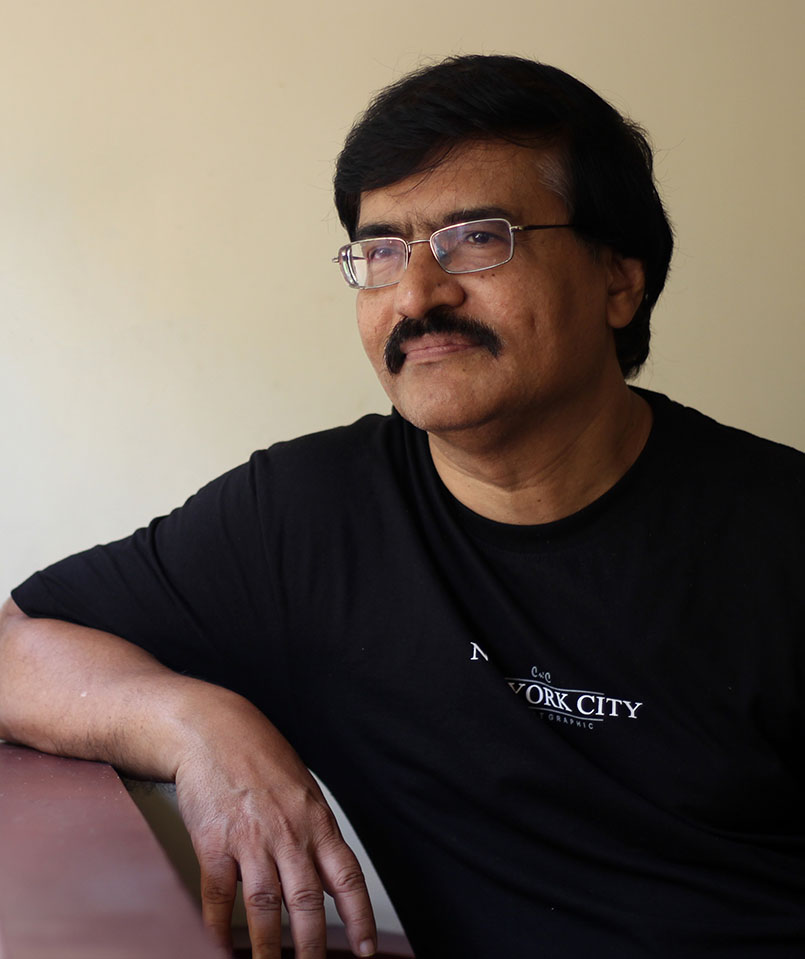

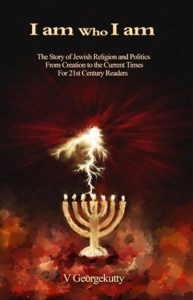
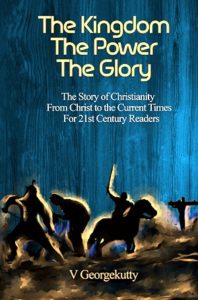

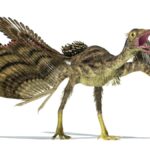

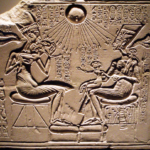
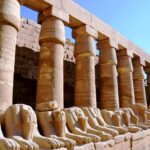
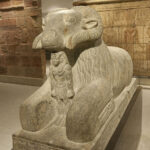
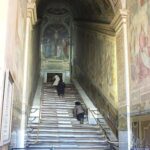
I read with lot of interest your blog on "The Old Man at the Bridge" Earnest Hemingway.
One of the reasons is that Hemingway along with Kafka and Camus had substantial influence in the way I looked at life and its myriad challenges. While reading their books, there was always a peculiar desire to seize any
denouements that synced with the life's experiences and reflect that one's life's progression perhaps wouldn't be dissimilar to those in the books. Well, books are born out of lives and lives are born out of books!
After having read the poignant review of "Old Man at the Bridge", your brilliant inferences on symbolism in the story and the observation that the story "touchingly presents the muted pain and agony of an old and enfeebled man who could not accept or comprehend the reason for his predicament," I am not able to resist myself from recalling his another book – "The Old Man and the Sea" which is about immense courage one should muster to get through life's tragedies, the importance of persistence and never give up attitude, the battles involved to remain triumphant and finally, the realization that all triumphs are not final. How I wish the story also finds place in your blog.
Thank you!
@mavuduru syamalrao Sir, I thank you for your enlightening observations. I have mostly been writing on Life, Religion and Philosophy. Those posts are often too heavy for the average reader. That is why I thought of changing track to experiment with writing a few posts on English Language and Literature. I have found the reader response good. Also, your comment gives me the inspiration to try more similar posts.
Yes Sir. I will attempt a post on 'The Old Man and the Sea' soon.
Regards,
VGKutty
'The Old Man and the Sea' was my Dad's favourite novel(la). I read it first as a boy of 8. Even then it made quite a lot of sense…Santiago and his struggle with the sea. This would later be adapted (in part) in 'Chemmeen.' Hemingway was a Marxist and political to the core…he is describing why every person should be political…otherwise he risks his life and livelihood. Political choice gives us a straight spine and answers to most of our vexing questions.
@Zeinab
Nice observations, well articulated.
Thanks
VGkutty